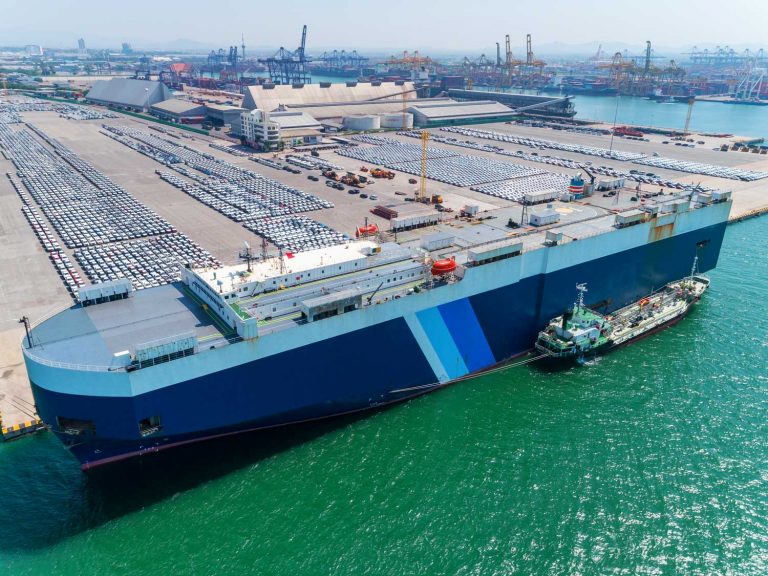
Date:
Momentum for UK Carmakers in Landmark US Trade Deal
British car manufacturers will benefit from cost savings and improved export competitiveness, following the formal implementation of the first stage of the UK–US ‘Economic Prosperity Deal’ signed at the G7 Summit on 16 June 2025.
Under the deal, up to 100,000 UK-built vehicles per year can now enter the United States at a reduced 10% tariff, down from the previous 25%. The change is part of a broader executive order issued by President Donald Trump to “operationalise” the agreement announced in May.
The automotive tariff changes are already being enacted, with the US Commerce Secretary directed to implement them formally within seven days of the executive order and the UK government expects the new rates to take effect by the end of June.
Prime Minister Starmer described the development as “a very good day for both of our countries – a real sign of strength”, adding: “This now implements on car tariffs and aerospace our really important agreement.”
The deal represents a significant strategic win for the UK automotive sector, which relies heavily on US exports and was previously burdened by high tariff barriers. The new quota-based relief delivers meaningful margin gains for UK carmakers and positions them to grow market share in the world’s second-largest car market.
The agreement also eliminates US tariffs on UK aerospace components and jet engines, providing immediate benefits to another high-value manufacturing sector. UK exporters in both industries are now exempt from levies introduced under Trump’s broader national security tariffs, which have seen global rates surge as high as 50% for some goods.
Steel and aluminium remain under review. While the UK has been granted a temporary exemption from the newly doubled 50% global tariff, the original 25% rate still applies. Trump’s executive order outlines plans for a future tariff-rate quota on UK metal imports, with details to be finalised by the US Department of Commerce based on UK compliance with broader trade commitments and security measures.
In return for the reduced tariffs, the UK has agreed to allow expanded US market access for beef, ethanol, and select industrial goods. The inclusion of a 1.4 billion litre tariff-free ethanol quota, equivalent to the UK’s entire annual demand, has drawn criticism from domestic bioethanol producers who warn of damaging effects on local industry.
Despite this, the agreement is being hailed as a breakthrough for key UK export sectors. Speaking after the announcement, UK Business and Trade Secretary Jonathan Reynolds noted. “We agreed this deal with the US to ensure jobs and livelihoods in some of our most vital sectors were protected, and we are delivering on the first set of agreements in a matter of weeks.”
For the automotive sector, the speed of implementation, clarity on tariff relief, and reaffirmed transatlantic cooperation point to a more promising and profitable trading future.
To explore how Metro supports leading automotive brands with global logistics, visit metro.global/automotive or EMAIL our managing director, Andrew Smith, to discuss post-deal opportunities.
